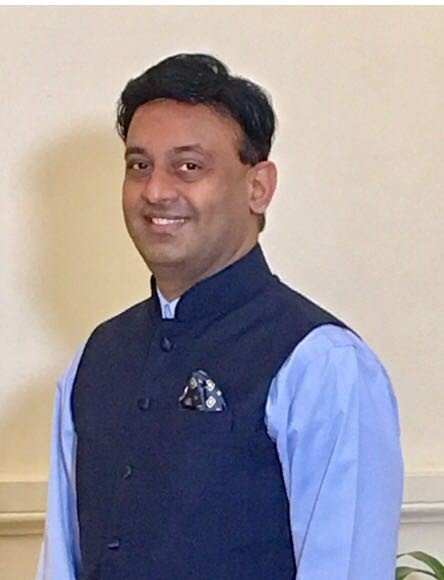America
AAPI Endorses American Medical Association Stand, Condemns Racial Discrimination and Violence
By
Ajay Ghosh
(Chicago, IL: June 1st, 2020) The death of George Floyd in police custody in Minneapolis on Memorial Day, May 25, 2020 has sparked several days of protests in the United States, a level of civil unrest not seen this widely across the country in decades. The series of angry protests now spreading to several states have turned violent and have led to further accusations of excessive use of force by officers.
The American Association of Physicians of Indian Origin (AAPI), while recognizing the pain and sufferings of the people impacted by the violence by the police and the protesters, in a statement on health equity and civil unrest, “condemned racial discrimination and violence.â€
Dr. Suresh Reddy, President of AAPI said, “As American Physicians of Indian-origin, we are unanimously outraged by George Floyd's death and the long history of racial discrimination that lives in this country. We are aware that these are difficult and distressing times for everyone.â€
Quoting the United Nations Universal Declaration of Human Rights, Dr. Seema Arora, Chair of AAPI BOT, said, “AAPI recognizes that all human beings are born free and equal in dignity and rights and that everyone is entitled to all the rights and freedoms set out therein, without distinction of any kind, in particular as to race, color or national origin. All human beings are equal before the law and are entitled to equal protection of the law against any discrimination and against any incitement to discrimination.â€
“We are saddened by the divisive rhetoric and racial tensions that seem to be getting worse each day. We need to find solutions that ensure everyone in this nation receives fair and equal treatment and that police officers – who put their lives on the line every day to protect us all – are respected and supported,†said Dr. Sudhakar Jonnalgadda, President-Elect of AAPI.
Endorsing the statement by American Medical Association (AMA)MA, which described the “police violence as a striking reflection of our American legacy of racism—a system that assigns value and structures opportunity while unfairly advantaging some and disadvantaging others based on their skin color and “saps the strength of the whole society through the waste of human resources,†as described by leading health equity expert Camara Jones, MD, MPH, PhD. Importantly, racism is detrimental to health in all its forms,†Dr. Sanku Rao, Chair, AAPI Ethics and Grievance Committee, said, “Along with other leading health organizations, including American Medical Association, we denounce incidents of racism and violence that continue to ravage our communities.â€
Dr. Anupama Gotimukula, Vice President of AAPI stressed on the need for education. She said, “We commit to educating ourselves about racism that manifests in our own community. We will work to address racism and health disparities through policy and by working with affected communities and the healthcare providers who serve them. Our fate is linked to the fate of our fellow citizens, and our work must include lifting up and supporting all the communities so we can all thrive.â€
“We stand in solidarity with peaceful protestors across the nation condemning the horrific death of George Floyd and calling out systemic racism and excessive violence by our nation’s police,†said Dr. Ravi Kolli, Secretary of AAPI. “We call upon police departments across the country to, meaningfully address the twin problems of systemic racism and excessive, disproportionate use of force by officers in their ranks, working with local communities to end both, and hold accountable the police officers with misconduct and excessive force.
â€
“As immigrants to the U.S., our families may not always understand this history, but we join in solidarity with the minority communities and call for justice for George Floyd and for many others who have lost their lives to police brutality,†said Dr. Namratha R. Kandula, Chair, AAPI’s Diversity and Equity Committee.
Dr. Raj Bhayani referred to AAPI “providing additional links to resources that can be helpful to you, your families, and others who want to engage in dialogues and self-reflection about racism and how we can begin moving in the right direction.â€
“As physicians, we are dedicated to improving the health of everyone in our communities,†added Dr. Suresh Reddy. “But we cannot fulfill this mission without directly confronting racism that is hurting the health of so many and contribute significantly to excess morbidity and death of the minority communties. At this time, we hope you stay safe, connected to community, and that you continue the important work of healing.†For more information, please visit: www.aapiusa,org
Additional Resources are available on the following links:
The 10 Steps for South Asians to take:
https://medium.com/@dviyer/south-asians-and-black-lives-b30adaba6a42
Smithsonian National Museum of African American History:
https://nmaahc.si.edu/about/news/national-museum-african-american-history-and-culture-releases-talking-about-race-we
Racial Equity Resource Guide:
http://www.racialequityresourceguide.org/
Ajay Ghosh
Chief Editor, www.theunn.com
Media Coordinator, American Association of Physicians of Indian Origin
Phone # (203) 583.6750

























